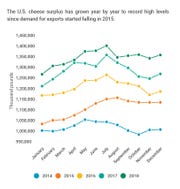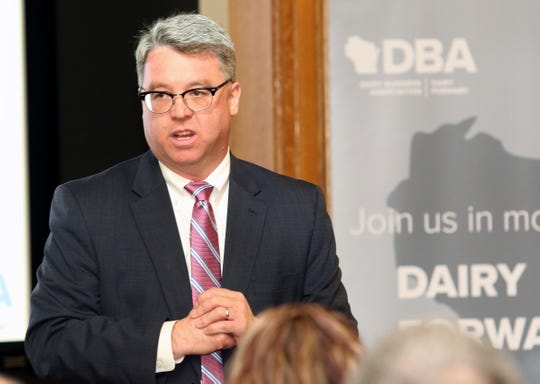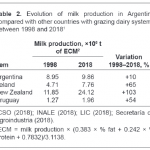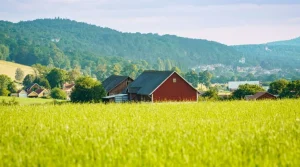
“We grow more agricultural products and produce more milk than we can ever possibly eat ourselves,” he said. “That needs to find a home.”
Pfaff, who leads the Wisconsin Department of Agriculture, Trade and Consumer Protection, sat down for an interview last week with USA TODAY NETWORK-Wisconsin.
The topics of the interview ranged from the loss of dairy farms across Wisconsin — lately, an average of two or three a day — to a report released late last month with dozens of recommendations to help the state’s struggling dairy industry.
Pfaff’s answers have been edited for length and clarity.
How would you describe the state of Wisconsin’s dairy industry at the moment?
Our dairy farmers are some of the most hard-working, resilient, forward-looking farmers in the nation. But over the last five years, we’ve had market prices that, quite frankly, have really made all of us pay attention.
We need to make sure that we provide every opportunity for farmers to capture revenue and do everything we can to lower the cost to produce the product. I want to be able to find markets in order to provide profitable opportunities for our farmers, but we also have to lower the cost.
We’re losing way too many people that are leaving the farm. Quite frankly, one is too many for me. But we’re losing too many and I recognize that’s got a financial and a social impact. We’ve got to do more.
What do you think of the rate at which the state has been losing dairy farms?
I think we need to recognize the fact that dairy farmers, like everyone else, reach the point where they want to retire. We have a lot of farmers that are in the baby-boomer generation and they are reaching retirement age. They want to do the next thing in their life, whatever that may be.
Too many are leaving because of low prices, but I think we need to look at the fact that they’re not all leaving because of low prices. Some are leaving because they’ve reached retirement age, others because they don’t have a transition plan in place for the next generation. But too many are going because of the price.
Our dairy farms are spread throughout the state. They’re all over. And the economic impact is all over. I can’t tell you today how many dairy farms there will be a year from now, five years from now, or 10 years from now. I can tell you what the Evers administration is very interested in doing is making sure that we can keep the landscape, the economic landscape, and give as many opportunities as we can for people to enter farming.
What stood out to you about the Dairy Task Force 2.0’s final report? How does Wisconsin begin to implement those recommendations?
The desire for new markets. That was very clear to me. We produce more food, more dairy products and more grain products than we can ever eat ourselves. We have to be able to find new markets.
The other thing that really stood out is we need to know our consumers even better than we know them right now. Consumers are driving all of this. We are making food products, including dairy products, that consumers want to be able to eat and drink.
The $8.8 million that went into the new “Dairy Innovation Hub” we think can potentially be a complete game-changer that will assist the individuals that are milking the cows and give the consumers that are enjoying the products even more variety. That’s being implemented right now.
Can you describe the impact that the recent trade disputes have had on Wisconsin’s dairy farmers?
I think it’s a real stretch to hold our family farmers accountable. They have to pay the economic price for this. I recognize that the administration is working with Congress in order to provide some financial aid to farmers. But the farmers I talk to, they don’t want aid — they want trade.

The U.S. cheese surplus has grown year by year to record high levels since demand for exports started falling in 2015. (Photo: Source: USDA National Agricultural Statistics Service)
The product still sits out there without a home. And as long as that product still sits without a home, it sets the price. We need to remove products from the market. That is why the governor has been very clear: find markets. We need market development constantly.
Family farmers recognize the fact they participate in a larger national and global economy. They want fair trade. I agree with them. They need fair trade. We need to make sure that our trading partners live up to the rules they need to abide by to be part of this trade environment.

























